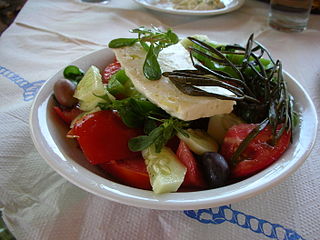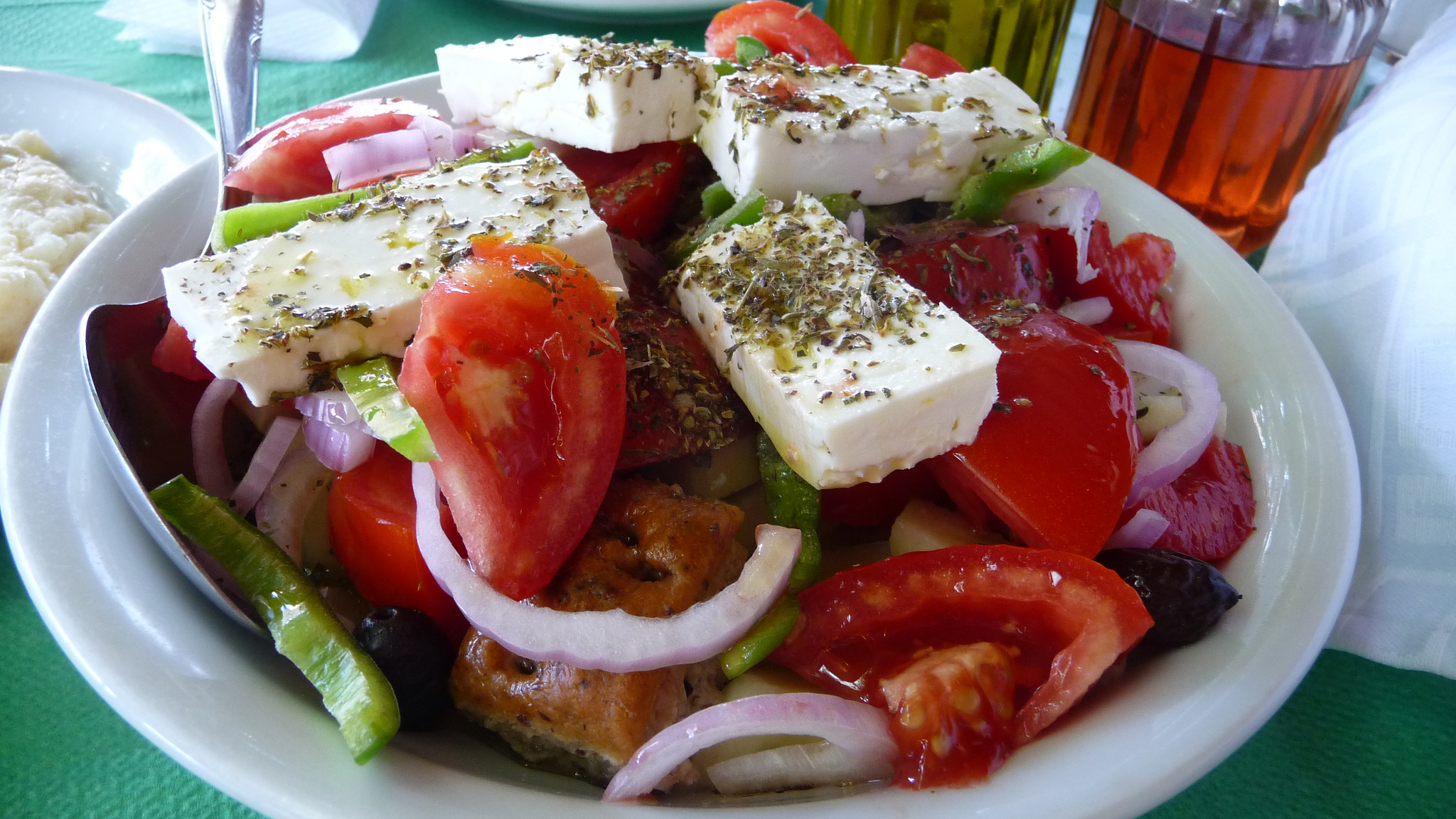
In the 1920s Louis M. In the 1920s Louis M.

Salads date back as far as the ancient history times.
Where did greek salad originate. Why is Greek salad called Greek. Xorˈjatiki saˈlata countryvillage salad is a dish from Greece. It is commonly served as a part of a traditional Greek meal.
It is one of the most popular salads in Greece and Cyprus. This is because it is light refreshing and easy to make. Are Greek salads actually Greek.
The word salad evolved from the Latin sal with direct reference to salt which evolved into salata or salted things. Herba salata translated to salted herbs. From salata came the French Salade.
Where did Greek salad originate. Greek salad originates from Greece. It is also called Horiatiki salad.
It is commonly served as a part of traditional Greek meal. What is Greek salad called in Greece. Greek salad is a popular salad in Greece.
This Greek salad not to be confused with the horiatiki emerged at around the same time in the sixties. There are references to Greek salad before then as early as the nineteen thirties but these were bizarre concoctions of mayonnaise and cabbage and its unclear what if anything made them the least bit Greek Greek immigrants flowed into the US in their biggest numbers from around 1890. Where did Greek salad potato salad originate.
In the 1920s Louis M. Pappas and his wife opened a small Greek restaurant in Tarpon Springs FL. It was called Pappas Restaurant and Louis.
The Greek salad is one of the most popular and well-known Greek dishes outside and inside Greece. Greeks love the horiatiki which means village in Greek. In the summer months it is present on most Greek tables at home and at the tavernes.
The Greek salad is one of the most popular and well-known Greek dishes outside and inside Greece. Greeks love the horiatiki which means village in Greek. In the summer months it is.
Indeed during the Archaic time period records pointed to ancient Greeks producing a type of feta using sheeps milk using Polyphemus technique though at. According to the Oxford Dictionary of Food and Drink in America mankinds finest vegetable creation was popularized way back in the Roman Empire. It first appeared in the form of raw leafy vegetables covered in salty oily dressing.
Indeed the word salad comes from sal. A Greek salad is primarily a summer dish and since lettuce only grows in Greece during the winter months a traditional Horiatiki salad does not include lettuce. Before we take a closer look at our key ingredient the tomato lets consider the history of this lovely salad.
From its Greek name we assume that it was a rural dish. The origins of iceberg lettuce and wedge salad history go back to ancient times. Food historians believe Egyptians were the first to cultivate lettuce.
They developed the plant grown for its oil-producing seeds into a table food highly valued for its succulent leaves. By the sixth century BC lettuce migrated to ancient Persia. The word ambrosia means delicious or fragrant.
Ambrosia was also the magical fruit of the gods in ancient Greek mythology. The gods on Mount Olympus ate ambrosia to maintain immortality and without it they became weak. In Homers Iliad the gods bathed in ambrosia and used it as perfume.
And though we are free to enjoy ambrosia today mythology dictated that mortals would face death if they. In Latin salata means salty. The reason salty and salad are associated with each other is because the vegetables usually are salted because of seasoning.
Salads date back as far as the ancient history times. The people from Rome and Greece during ancient times claimed they ate salads. A book written in 1699 was about salads.
The salad originated in the mountains of Lebanon and Syria and was an essential part of peoples diets in the Middle Ages. While mocked at first for its lack of meat people quickly adopted it because of the incredible taste and health benefits. Variants throughout the Levant include the Turkish kisir and Armenian eetch.